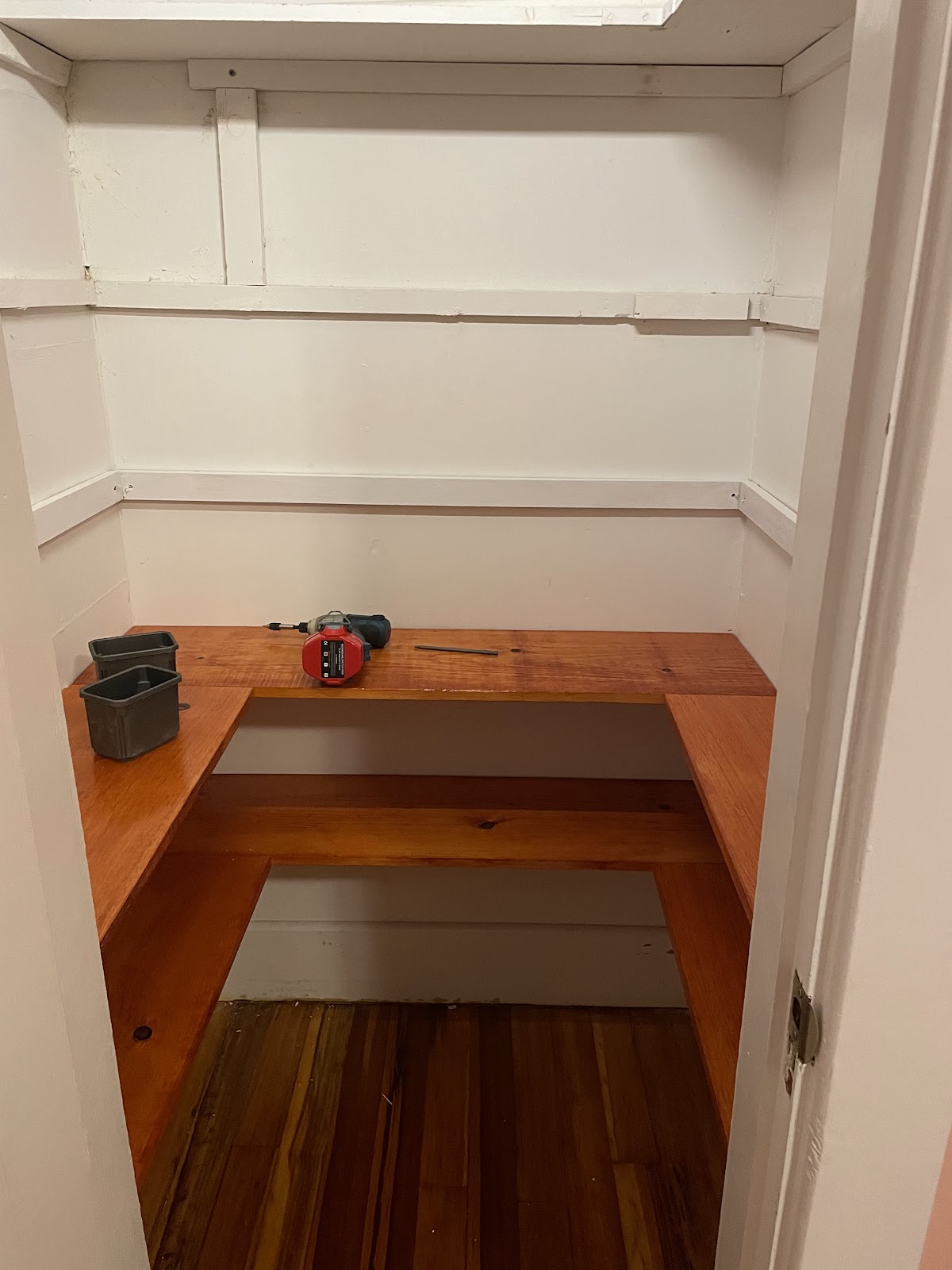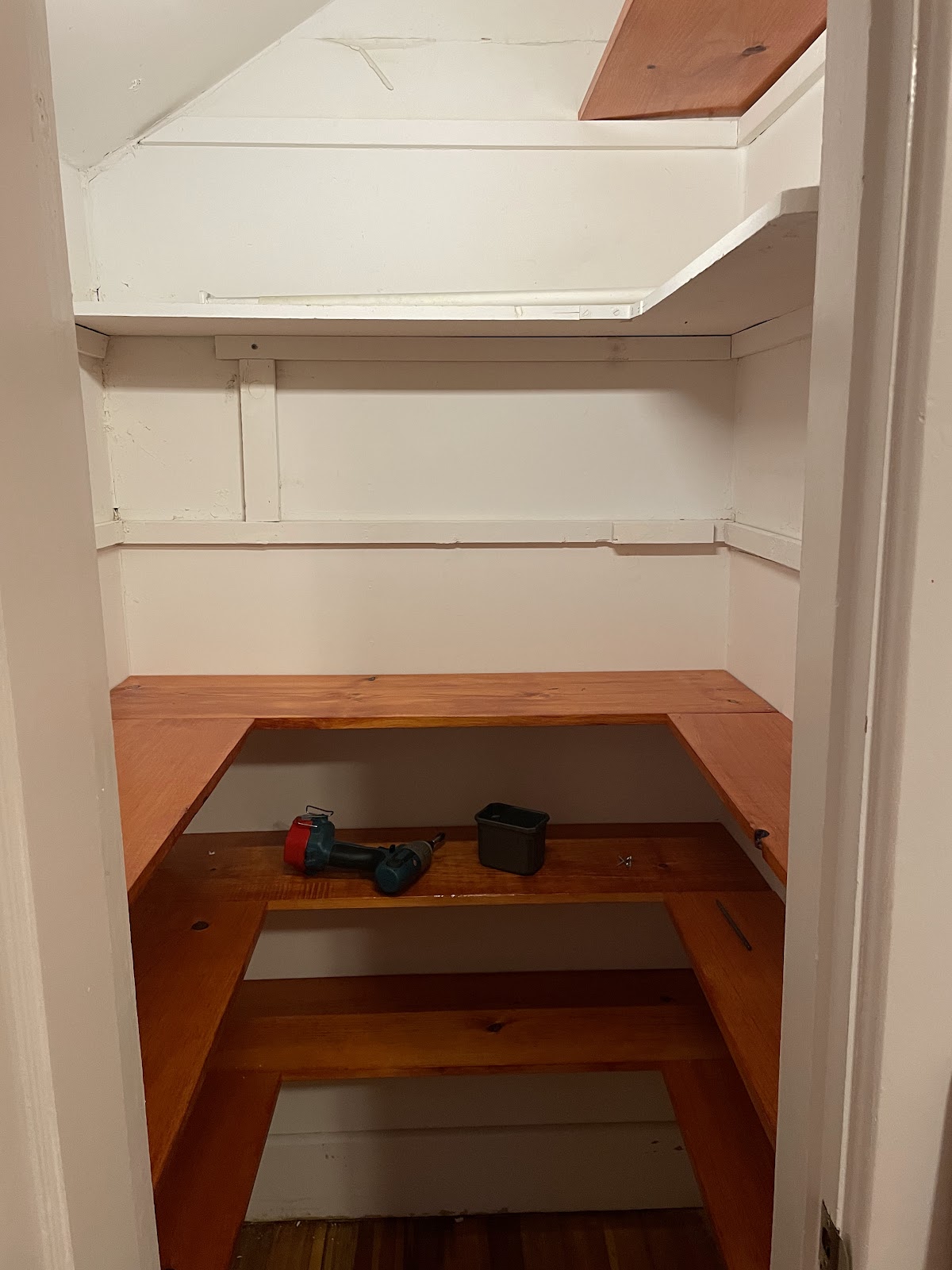Added two someones who always should have been there!
Friday, January 2
Monday, September 1
Project Hail Mary
Notes for our book club:
- Main character seems to leave burritos everywhere. In a book about him lacking food, this bugged me.
- Rocky is an interesting negative relief of the main character. Rocky is confident, Grace is not. Rocky is brave, Grace is reluctant. Rocky has little sense of individuality, Grace does. Grace has an ability to come up with creative solutions, but Rocky doesn't?
- Xenonite too convenient? Is anything else too convenient?
- Do you think Rocky threw his crewmates out into space like Grace did? Why?
- The book is like baseball. There's no time limit. It's just events and then events. It creates tensions by setting up situations and then presenting you with interesting solutions. The tension comes from the fact that you're not sure how he's going to succeed. It seems like Grace should make more mistakes than he actually does, and in a way there's also tension there. It seems somewhat unbelievable that he doesn't make more mistakes.
- The ending sort of disregards the relationship between Grace and Earth, and makes the book more about Grace's relationship with himself -- but in the end neither ending really seems to hit hard because the book was mostly about Grace's relationship with the problem being presented. Once the problem is solved and Rocky is saved, there's no reason for there to be more book.
- I like the structure of the book -- it doesn't make sense to reveal things about the character without the amnesia. It drives the flashback sequences.
- The environmentalist, Leclerc, seems a bit canned.
- The book is about countries uniting, and allows the plot to be MOSTLY about grace and his relationship with the truth. I like that it shows how simple our current problems are; we are humans but we don't see each other as the same. Rocky doesn't have this problem.
- It's interesting that most of the book seems plausible except for astrophage and xenonite. It makes it seem like we're actually really close to interstellar travel. Exciting!
Sunday, March 2
Arthur C. Clarke, Childhood's End, 1953
...it was in the art of the cartoon film, with its limitless possibilities, that New Athens had made its most successful experiments. The hundred years since the time of Disney had still left much undone in this most flexible of all mediums. On the purely realistic side, results could be produced indistinguishable from actual photography -- much to the contempt of those who were developing the cartoon along abstract lines.
The group of artists and scientists that had so far done least was the one that had attracted the greatest interest -- and the greatest alarm. This was the team working on "total identification". The history of the cinema gave the clue to their actions. First sound, then color, then stereoscopy, then Cinerama, had made the old "moving pictures" more and more like reality itself. Where was the end of the story? Surely, the final stage would be reached when the audience forgot it was an audience, and became part of the action. To achieve this would involve simulation of all the senses, and perhaps hypnosis as well, but many believed it to be practical. When the goal was attained, there would be an enormous enrichment of human experience. A man could become -- for a while, at least -- any other person, and could take part in any conceivable adventure, real or imaginary. he could even be a plant or an animal, if it proved possible to capture and record the sense impressions of other living creatures. And when the "program" was over, he would have acquired a memory as vivid as any experience in his actual life -- indeed indistinguishable from reality itself.
The prospect was dazzling. Many also found it terrifying, and hoped that the enterprise would fail. But they knew in their hearts that once science had declared a thing possible, there was no escape from its eventual realization...
This, then, was New Athens and some of its dreams. It hoped to become what the old Athens might have been had it possessed machines instead of slaves, science instead of superstition. But it was much too early yet to tell if the experiment would succeed.
Monday, October 21
The Best Of Us
I finished The Last Of Us Part 2 yesterday.
I can't get the music out of my head, among other things.
The game is sprawling. It sprawls across hours and hours. It's longer than you think it is. It affected me. It contains a vertical slice of something.
Part 1 was revolutionary to me, a new kind of game storytelling -- it pushed the boundary of what I thought games could be. The end of Part 1 does this thing where you have the sudden realization that you are not the main character, though you have acted as them and been them for the whole game. You have identified with them and told yourself that you made the choices. The game's physical and emotional environment is immersive, so you fall into feeling this way. Then, at the end, you experience a break -- the story forces the main character to do something that feels repulsive, inhuman. You are forced to reckon with the fact that you are not Joel. So it contains a subtle kind of fourth-wall break where the story veers away from you as the player, and you watch the characters become not you.
I don't know how I expected Part 2 to follow that. I was very suspicious going in -- I thought, "this game is going to try and trick me into identifying with the characters. That's how it's going to get its hooks in me." So I was on my guard. And it still fooled me. I think it was because the game switches between two characters pretty often, so you never really feel that you are one person. In fact, you are two people who are actively trying to kill each other. And they are both deserving of sympathy. So who are you, as the user, playing as? You're playing as the conflict. But you don't realize it until nearly the end. This is especially clear in moments when the two protagonists are fighting.
Thursday, June 27
Friday, April 26
Wednesday, April 17
Ludum Dare 55!
Made this game with some excellent friends from work!
https://catlard.itch.io/court-conjurer


















